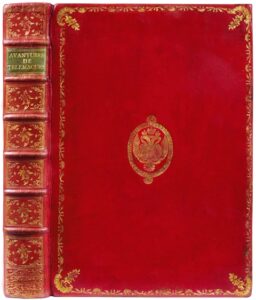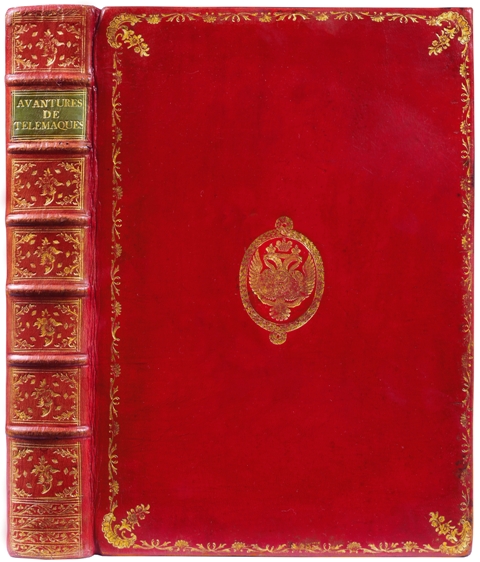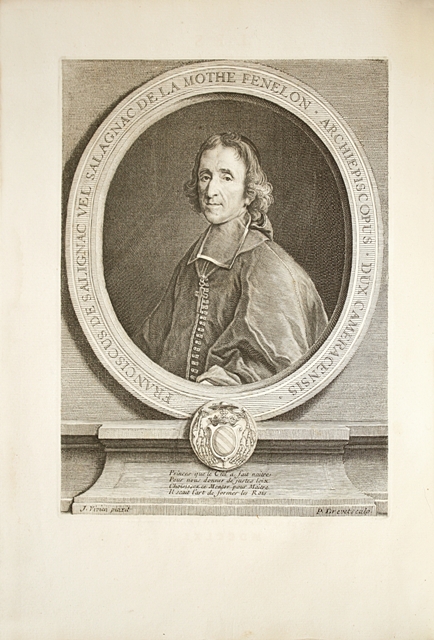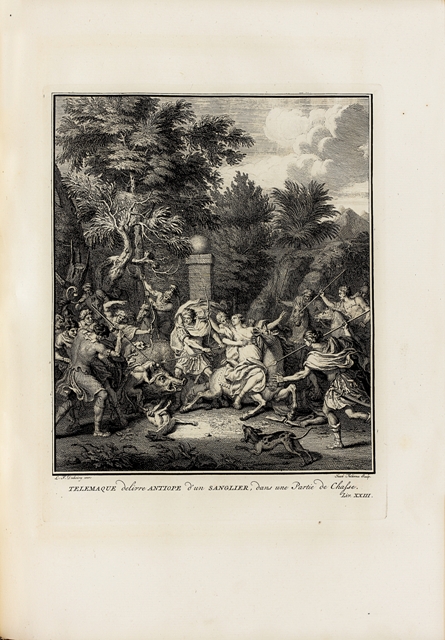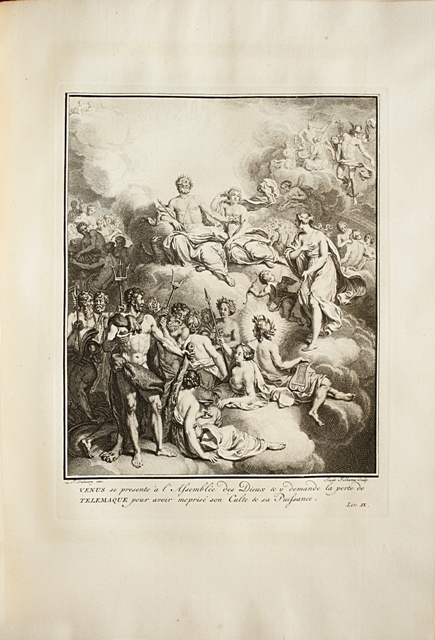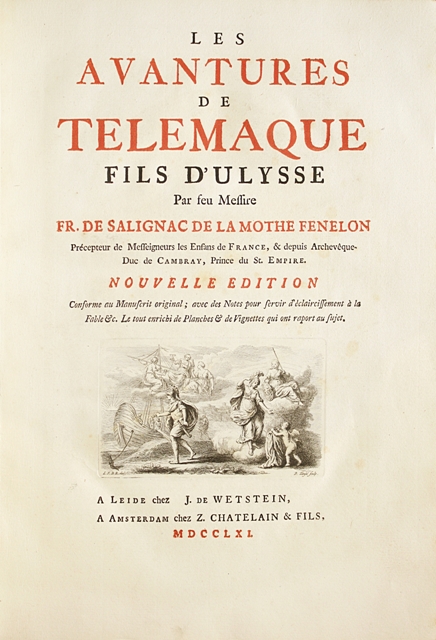Leiden, J. de Wetstein and in Amsterdam, Z. Chatelain & Fils, 1761.
Folio [345 x 250 mm] of (10) ll. including 1 portrait of the author and 1 frontispiece, 385 pp. and 24 full page plates out of pagination. Bound in full contemporary red Russian lêther, gilt border with a foliage pattern on the covers, gilt arms on the center, spine ribbed and decorated with gilt fleurons, green morocco lettering piece, gilt edges. Contemporary Russian binding.
Rare enlarged edition, one of the most bêutiful, of Fenelon’s most famous book.
This edition, grêtly enlarged, was made from the one printed in Amsterdam in 1734 and considered as the most bêutiful one of Fenelon’s book. It is particularly interesting as some of the “plays removed from the 1734 edition have been reprinted there”. (Cohen, 382)
Thus, our copy has a Chapter of Fenelon’s genêlogy (6 pp.) as well as an Examination of the conscience for a King (32pp.) published here for the first time.
It is decorated with a frontispieceby Picart engraved by Folkéma, with a fleuron on the title by Dubourg engraved by Tanjé, with a portrait of Fenelon engraved by Drevet after Vivien, with 24 figures by Debrie, Dubourg and Picart engraved by Bernaerts, Folkéma, V. Gunst and Surugue, with 24 vignettes by Dubourg engraved by Duflos, Folkéma and Tanjé, and with 21 tail-pieces by Debrie and Dubourg engraved by Duflos and Schenck.
Telemachus is an appropriate work in every sense of the word. Indeed, we know that, in 1689, Fenelon became the home tutor of the three sons of the Grand Dauphin. He mostly had to take care of the duke of Burgundy, the most difficult of them, who happened to be at the same time heir to the throne.
“It is in Homer’s ‘Odyssey’ that he got his subject from. Putting his trust in book fourth, he chose the hero most likely to interest his student: the young Telemachus, son of Ulysses, who is setting out on a perilous journey in order to find his father whose absence is about to cause serious disturbances in the rêlm.”
A precious folio copy, printed on large Dutch paper, in a seducing contemporary red morocco Russian binding with the arms of Sophie Dorothê of Württemberg, called in Russia Maria Feodorovna.
Dorothê-Sophie-Augusta of Württemberg(1759-1828), second wife of the tsar Paul I, whom she married in 1776, took then the name of Maria Feodorovna, embracing the Orthodox religion. She is the mother of tsar Alexander I.
See less information
